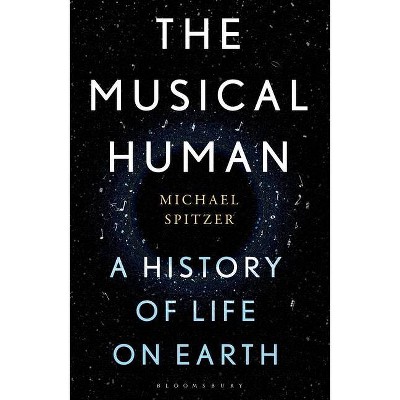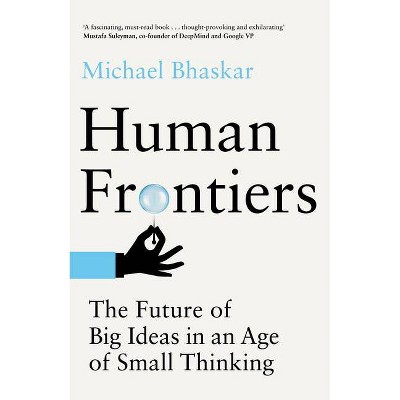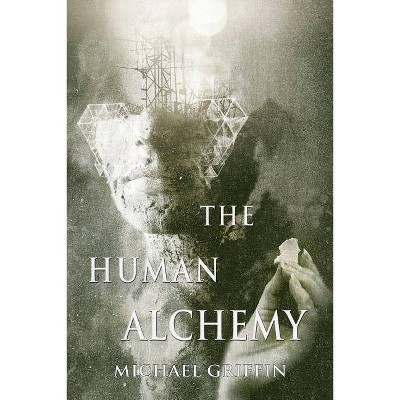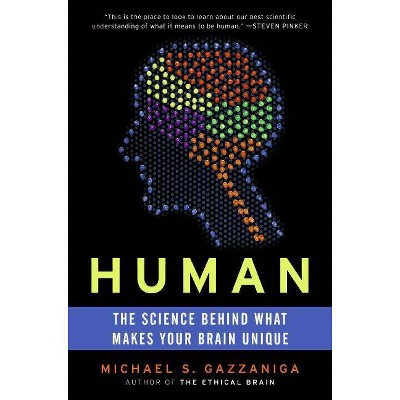The Musical Human - by Michael Spitzer (Hardcover)

Similar Products
Products of same category from the store
Product info
<p/><br></br><p><b> About the Book </b></p></br></br><b>A colossal history spanning cultures, time, and space to explore the vibrant relationship between music and the human species.</b><p/><br></br><p><b> Book Synopsis </b></p></br></br><p><b>Michael Spitzer has pulled off the impossible: a <i>Guns, Germs and Steel</i> for music. --Daniel Levitin </b> <p/><b>A colossal history spanning cultures, time, and space to explore the vibrant relationship between music and the human species.</b> <p/><b>165 million years ago saw the birth of rhythm.</b><br><b>66 million years ago was the first melody.</b><br><b>40 thousand years ago </b><b><i>Homo sapiens</i></b><b> created the first musical instrument.</b> <p/>Today music fills our lives. How we have created, performed and listened to this music throughout history has defined what our species is and how we understand who we are. Yet music is an overlooked part of our origin story. <i>The Musical Human</i> takes us on an exhilarating journey across the ages - from Bach to BTS and back - to explore the vibrant relationship between music and the human species. With insights from a wealth of disciplines, world-leading musicologist Michael Spitzer renders a global history of music on the widest possible canvas, looking at music in our everyday lives; music in world history; and music in evolution, from insects to apes, humans to AI. Through this journey we begin to understand how music is central to the distinctly human experiences of cognition, feeling and even biology, both widening and closing the evolutionary gaps between ourselves and animals in surprising ways. <p/><i>The Musical Human</i> boldly puts the case that music is the most important thing we ever did; it is a fundamental part of what makes us human.</p><p/><br></br><p><b> Review Quotes </b></p></br></br><br><p>"Michael Spitzer has pulled off the impossible: a <i>Guns, Germs and Steel</i> for music." --<i>Daniel Levitin</i> <p/>"Spitzer emphasizes the universality of music; everyone, for example, can associate an emotional experience with music. Touching on culture, history, science, anthropology, and philosophy, Spitzer discusses music from ancient times to the courts of medieval and Renaissance Europe to the modern era and everything in between, employing voluminous examples . . . sublimely readable." --<i>Booklist, starred review</i> <p/>"Whether [Spitzer] is meditating on the utility of metaphor in capturing music's intrinsic abstraction or discussing emotion theory across a sweep of genres, his writing is broad, deep, and layered . . . Weaving through history, philosophy, archaeology, and biology, he demonstrates how music was not serendipitously invented by human beings but rather is innate to this world. With humorous and concise prose, Spitzer makes a convincing case for the irreducible musical properties of human beings." --<i>Library Journal, starred review</i> <p/>"A thrilling exploration of what music has meant and means to humankind." --<i>Ian Bostridge</i> <p/>"A hugely ambitious work, but never daunting, and there's something thought-provoking on every page ... With scholarship, wit and passion, this book demonstrates that there truly is a soundtrack to human lives." --<i>Catherine Bott</i> <p/>"This book has connected me to not only the language of love but the language of life. A revelation." --<i>Michael Cashman</i> <p/>Extraordinary . . . ranging from the Geissenklösterle caves to K-Pop, from the lost music of the Aztecs to the role of song in hunter-gatherer societies, and drawing on a vast array of specialisations, from archaeoacoustics to ornithology, Spitzer utilises a breath-taking variety of sources... Spitzer's [book] will make you think differently about music, about its place in your life and about its importance to human life <i>tout court</i>. - <i>Literary Review</i> <p/>Full of delightful nuggets and sends the reader back to a world of musical examples time and time again. - <i>The Guardian</i> <p/>This is a history book like no other...in this impressive new work Michael Spitzer argues that music is fundamental to humanity . . . entertaining, informative and philosophical . . . an essential read. - <i>All About History</i> <p/>Think of all the music you have ever listened to, and then all that's been heard by your friends and your ancestors, and then throw in the clicking of insects and the humming of whales, and the story of an Australian lyre bird which in 1969 was recorded whistling a Scottish folksong its ancestors had learnt from a farmer, and add almost everything you could stream on Spotify, you still won't come close to the extraordinary range of Michael Spitzer's book. - <i>Evening Standard</i> <p/>Spitzer's writing style is light and allusively connective, bouncing from David Bowie to K-Pop to Guido d'Arezzo, the 11th-century Italian monk who invented staff notation. He folds in philosophy, archaeology and biology. He's funny and sharp and fired by passion. - <i>Arkansas Democrat-Gazette</i> <p/><i></i>A fascinating, far-reaching, up-to-date survey of multiple dimensions of the human musical experience--I know of nothing comparable. I learned something on nearly every page. - <i>Howard Gardener, author of A SYNTHESIZING MIND</i></p><br><p/><br></br><p><b> About the Author </b></p></br></br><b>Michael Spitzer</b> is professor of music at the University of Liverpool, where he leads the department's work on classical music. A music theorist and musicologist, he is an authority on Beethoven, with interests in aesthetics and critical theory, cognitive metaphor, and music and affect. He organized the International Conferences on Music and Emotion and the International Conference on Analyzing Popular Music and currently chairs the editorial board of <i>Music Analysis Journal</i>.
Price History
Price Archive shows prices from various stores, lets you see history and find the cheapest. There is no actual sale on the website. For all support, inquiry and suggestion messagescommunication@pricearchive.us




















